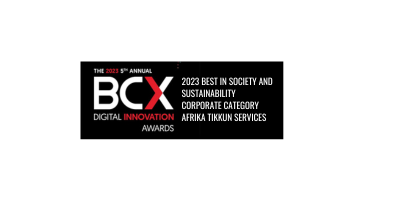Women in Business Series: Nthabiseng Thaba
Nthabiseng Thaba says we must be willing to learn from the bottom up and get our hands dirty. As the HR Business Partner at Leroy Merlin, she’s the perfect person to give advice on career development. She talks to us about trying to achieve that ever-elusive work-life balance.
Nthabiseng Thaba’s passion for skills development and the empowerment of the unemployed has been the momentum behind her work as a registered Human Resources and Learning and Development professional. Nthabiseng’s 15 plus years in the field has spanned from manufacturing to retail and been filled with periods of joy as well as sobering challenges. One of her proudest professional moments was convincing her senior management at Leroy Merlin, who at the time were in South Africa for less than a year and unfamiliar with the South African skills platform, to embark on a learnership employing unemployed individuals. “Seventy-five percent of the learners were absorbed permanently into the business after the learning intervention,” said Nthabiseng, who also volunteers her time to help mobilise for sanitary products for teenage girls. “Influencing a group of 100% white male Europeans to sponsor unemployed South Africans was a great achievement, especially as the group had not begun to trade and the justification for funding seemed like a non-reality.”
With her expertise on workplace culture, Nthabiseng knows that although she has managed to achieve a significant level of success, many women still very undermined in the workplace, particularly environments that are male dominated. “I feel women of colour are the most disadvantaged and we find ourselves having to overcompensate just to reach higher levels within our workplaces.”
Perhaps having to perform in a system that’s rigged against them, Nthabiseng also believes that women don’t support each other as much as they should. This remains one of the biggest challenges in her work, and something she’s had to power through. “Some female leaders need to suppress another in order for them to climb higher,” she says. “I overcame this challenge through tenacity, putting my head down and concentrating on my strengths and skills.” This is wonderful advice for all women in the workplace but especially young women who might not be familiar with workplace dynamics. In addition, Nthabiseng suggests that courage and curiosity are important ingredients for success today. “Women must have the ability to discover more and not be afraid to reach out and be courageous,” she advises. “Strategic goal-orientated thought process is a skill that will enable women to excel as they think of the future prospects, more than the challenges of today.”
As an HR professional, Nthabiseng knows that professional development through skills development and academic pursuit is more difficult for women, as they often have prioritise household and parenting responsibilities. Trying to establish some semblance of balance is still a reality of many women. “Today’s world puts a big emphasis on theoretical achievement and sometimes no matter how much practical experience you have it’s simply not enough to achieve financial recognition or even position recognition,” Nthabiseng says. “I felt it was necessary to ensure that I achieve qualifications that can differentiate me from the rest; not an easy task, especially because as a woman you are the person who is mainly responsible for the well-being of the children and therefore on most occasions, my position as a woman and as a mother had to take priority. Submitting that last assignment at the stroke of midnight, right before deadline didn’t give me any brownie points with the marker. But, through this, I have grown and become stronger. Sadly, this is still the story of most women wanting to make headway in their careers.”
Responding to the Covid-19 pandemic through to skills development is extremely important. Social, educational and economic impacts will have to be mitigated by carefully considering how we equip young people going forward. Nthabiseng suggests that we strengthen our focus on technology and preparedness for the digital future. “Technological skills are paramount and critical for future survival. It is a reality, not a privilege,” she notes. “Also the ability to be multi-skilled and autonomous will enable the youth to not be redundant as the world moves towards the 4th Industrial Revolution. Now is not the time to follow but to lead; it’s the only way to stay relevant.”



